Women’s tennis: World No.1 Ash Barty announces shock retirement
The Australian won 15 titles, including the Australian Open, Wimbledon and the French Open and was the sport’s top player for 121 weeks.
It’s possible that I shall make an ass of myself. But in that case one can always get out of it with a little dialectic. I have, of course, so worded my proposition as to be right either way (K.Marx, Letter to F.Engels on the Indian Mutiny)
Women’s tennis: World No.1 Ash Barty announces shock retirement
The Australian won 15 titles, including the Australian Open, Wimbledon and the French Open and was the sport’s top player for 121 weeks.
The world’s top women’s tennis player Ashleigh Barty has stunned the sport by announcing her early retirement at the age of just 25.
“Today is difficult and filled with emotion for me as I announce my retirement from tennis,” she said in a video posted on Instagram.
The Australian leaves the sport less than two months after becoming the country’s first home-grown Australian Open champion in 44 years, and winning a Grand Slam tournament on three different surfaces.
Barty has won 15 titles, including Wimbledon, played on grass, and the French Open, played on clay.
“I know how much work it takes to bring the best out of yourself … I don’t have that in me any more,” she said in the video.
“I don’t have the physical drive, the emotional want and everything it takes to challenge yourself at the very top level any more. I am spent.”
Barty previously walked away from the game as a teenager in late 2014 after becoming disaffected by the Tour.
She returned in 2016 and rose rapidly through the rankings, earning global acclaim for her brilliant tennis and winning the affection of fans for her unfailing sportsmanship.
She spent a total of 121 weeks as the world’s best and appeared destined for more success.
“Thank you for being an incredible ambassador for this sport and for women around the world,” the Women’s Tennis Association tweeted. “We will miss you so much, Ash.”
Barty made no secret of her dislike for the touring life and her battles with homesickness.
“Ash Barty, the person, has so many dreams she wants to chase after that don’t necessarily involve travelling the world, being away from my family, being away from my home, which is where I’ve always wanted to be,” she said on Instagram where she was speaking to her close friend and former doubles partner Casey Dellacqua.
“I’ll never, ever stop loving tennis, it’s been a massive part of my life, but I think it’s important that I get to enjoy the next part of my life as Ash Barty the person, not Ash Barty the athlete.”
When the COVID-19 pandemic halted elite tennis in 2020, Barty took nearly a year off from the game to spend time with family rather than rejoin the circuit after it resumed.
“I know I’ve done this before, but in a different feeling,” she said.
“I’m so grateful for tennis, it’s given me all of my dreams, plus more, but I know the time is right now for me to step away and chase other dreams and to put the racquets down.”
She bows out after having earned nearly $24m in career prize money and as a national hero – the second Aboriginal Australian to win a Grand Slam title – following in the footsteps of Evonne Goolagong Cawley.
Barty’s bombshell news triggered tributes from players and officials.
“Happy for @ashbarty, gutted for tennis,” said Briton Andy Murray. “What a player.
The Women’s Tennis Association chair Steve Simon said Barty always led by example “through the unwavering professionalism and sportsmanship she brought to every match.
“With her accomplishments at the Grand Slams, WTA Finals, and reaching the pinnacle ranking of No1 in the world, she has clearly established herself as one the great champions of the WTA.”
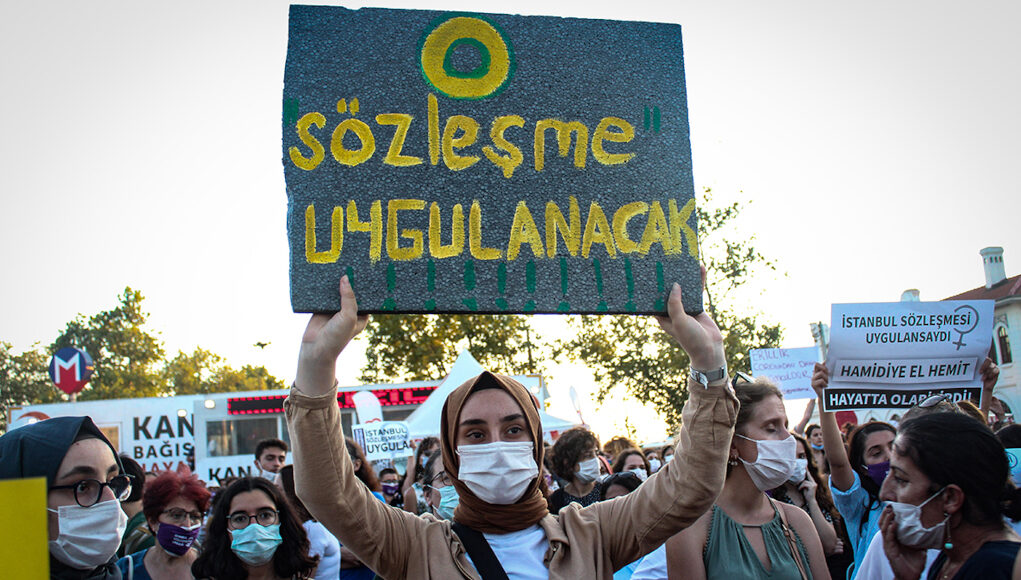
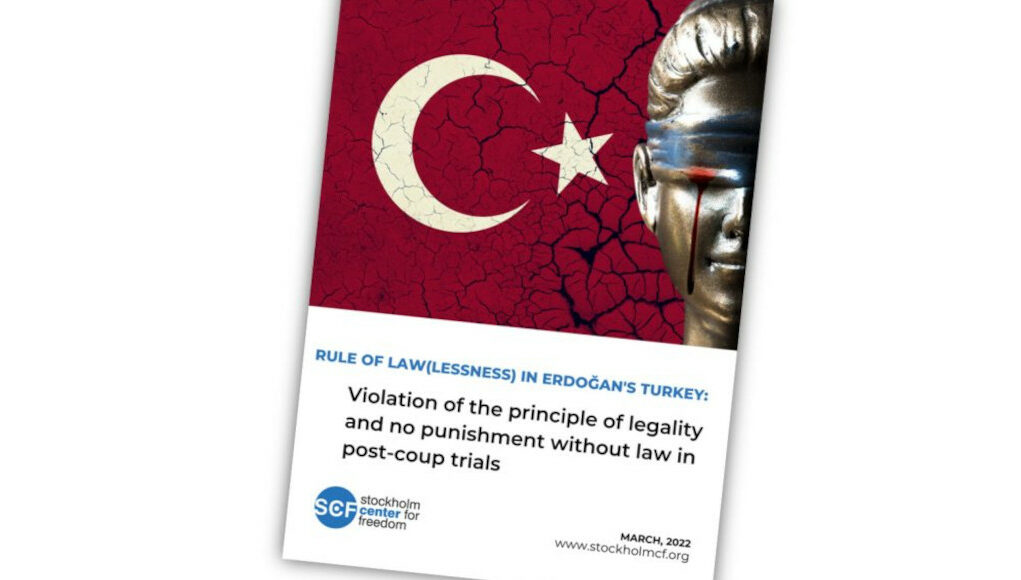
The West is "provoking" a world war by using Ukraine as a "proxy" against Russia, writer Yves Engler shouted as he hijacked the minister’s speech
by RT / March 22nd, 2022

Writer and activist Yves Engler interrupted a speech by Canadian Foreign Minister Melanie Joly, accusing the authorities in Ottawa of escalating the conflict between Russia and Ukraine and increasing the risk of it turning into a global confrontation.
Engler shared a clip of himself confronting the foreign minister on Twitter on Tuesday.
It showed the leftist writer entering the conference hall and walking towards the stage, shouting: “Stop escalating the war. Stop sending arms to Ukraine… You’re going to push us to World War III.”
Canada, which along with the US and other Western nations backs Ukraine in the ongoing conflict, has sent so many rocket launchers, grenades, and other equipment to Kiev that it has “exhausted” its own military’s stockpile of weapons, Canadian Defense Minister Anita Anand said last week.
“Why didn’t you push Kiev to sign the Minsk accords?” Engler asked, addressing Joly.
The Minsk agreements, which were signed with the mediation of Russia, Germany, and France in 2014, were designed to regulate the status of the breakaway republics of Donetsk and Lugansk as part of Ukraine.
However, shortly before Russia launched its military operation in February, Ukrainian President Volodymyr Zelensky called the accords “incompetent” and made it clear that Kiev wasn’t going to fulfill them.
“Stop using Ukraine as a proxy against Russia,” the author said, repeating some of his statements in French and then managing to flee the room before security could apprehend him.
In an article published on his website on Monday, Engler condemned the Russian attack on Ukraine, but pointed out that NATO’s eastward expansion had increased the likelihood of an armed conflict between the two nations. A declaration of Ukraine as a neutral state which will never join the US-led military bloc has been one of Moscow’s key demands during the ongoing peace talks with Kiev.
“Peace minded Canadians should redouble our efforts to get Canada out of NATO,” he said.
Engler, who is the author of a dozen books, also actively protested the involvement of Canada in the coup in Haiti in 2004. At the time, he crashed a press conference by then-Canadian Foreign Minister Pierre Pettigrew and poured cranberry juice on him, symbolizing the blood of the Haitian people.
He is also a strong supporter of the Boycott, Divestment and Sanctions campaign, which calls for measures against Israel over its occupation of Palestinian lands.
Unchecked Power of Senior Bankers Is Exposed by China Crackdown
CRIMINAL CAPITALI$M WITH CHINESE CHARACTERISTICS
Bloomberg News, Bloomberg News
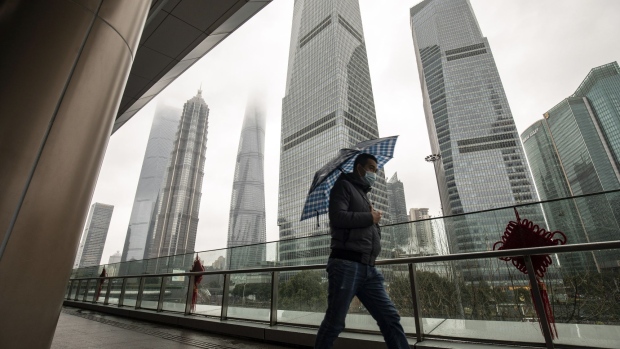
A pedestrian passes buildings in Pudong's Lujiazui Financial District in Shanghai, China, on Monday, Feb. 7, 2022. Asian stocks were mixed amid a rally in China on Monday as the nation’s markets reopened from a holiday, while the prospect of global monetary tightening continued to weigh on bonds. Photographer: Qilai Shen/Bloomberg , Bloomberg
(Bloomberg) -- Bribery. Kickbacks. Cover-ups. For one week in January, Chinese state television devoted its prime-time slot to a series that detailed high-profile financial crimes by some of country’s most senior bankers.
There was the former head of China’s largest policy bank, who accepted bribes to approve a $4.8 billion credit line to a conglomerate that failed shortly after. Another state-owned bank executive used carefully structured shadow firms to receive 10 million yuan in kickbacks for approving real-estate loans of more than 4 billion yuan to a single developer.
The multipart broadcast was framed as a celebration of Beijing’s long-running anti-corruption campaign, part of President Xi Jinping’s overall attempts to stabilize the economy ahead of a meeting that’s expected to award him a third term in office. But it also revealed how senior bankers have been allowed to operate with few checks and even less accountability, and connected their actions with massive credit defaults and other market instability.
The recent investigation into 25 entities marks the first systematic review of the financial sector since 2015, and last month, when it concluded, the nation’s top disciplinary watchdog sharply criticized financial institutions and regulators for prominent corruption and insufficient risk monitoring – problems it said were “common.”
More than 20 finance industry officials have been punished or probed since the investigation began; over the past few years, lax governance has contributed to estimated losses of hundreds of billions of yuan.
Without intervention, China’s financial sector could become “a runaway elephant in a china shop,” said Shen Meng, a director at Beijing-based boutique investment bank Chanson & Co. “Deep down, people still lack this awareness that essentially, corporate governance serves to cut the risk of decision making, by checking and balancing all parties.”
Listed firms are required to implement modern corporate governance structures, but China’s standards are often lower than those in developed markets. In the U.S., for example, independent directors make up about 80% of the board, on average. Most Chinese companies only meet the minimum requirement of one-third independent directors, a “lack of oversight that ultimately allows for poor operational and financial controls,” said Rob Du Boff, a Bloomberg Intelligence analyst specializes in ESG.
The collapse of China Huarong Asset Management Co. is one of the best-known cases where traditional governance mechanisms failed. Former chairman Lai Xiaomin was also the head of the internal party committee and the company’s legal representative. The company’s party discipline chief reported to him. “It was difficult for him to supervise me, to be honest,” Lai said in 2020.
Without any meaningful oversight, Lai drove Huarong to aggressive expansion. Eventually, the firm posted a record loss that led to a $6.6 billion state-orchestrated bailout, and Lai was executed for bribery and other crimes.
But there have also been smaller examples. Hu Huaibang, the former chairman of China Development Bank, took some 85.5 million yuan in bribes over a decade through 2019. In exchange, he facilitated loans that included $4.8 billion to the now failed conglomerate CEFC China Energy Co., even though China had called for the policy bank to cut its exposure to such commercial projects.
His motivation was basic: “As a senior executive in the finance sector, you get to make contact with people with relatively high classes and they own private jets and everything,” he said in the state-sponsored docuseries. “That’s when I felt the unfairness and became weak-minded and slipped into the abyss.”
Senior leaders at Chinese financial institutions, especially state-owned ones, hold official government titles and earn government-limited salaries. The chairmen of China’s largest state-owned banks each earn about $120,000 a year – less than 1% of what their U.S. counterparts made in 2020.
The former governor of China Citic Bank Corp., Sun Deshun, often neglected the bank’s internal credit approval board and intervened directly to facilitate loans for developers in exchange for bribes. Investigators found he used more than a dozen shadow firms, managed by his two surrogates, for bribes disguised as financial products and equity investments.
In early 2020, the banking regulator levied a 22 million yuan fine on Citic Bank for 19 violations, of which 13 were linked to the property sector. Later that year, Sun was expelled from the Communist Party, arrested for alleged bribery among other violations, and prosecuted.
But regulators were also susceptible. A former deputy chairman of China’s banking regulator, Cai Esheng, used his personal influence to facilitate loans and projects in exchange for cash, banquets, travel and other gifts.
In the case of Baoshang Bank Co., at least five officials including the former head of the Inner Mongolian banking watchdog took hundreds of millions of yuan in bribes to make way for its “wild expansion and illegal operations” that eventually led to its collapse and China’s first bank seizure in more than 20 years.
These kinds of investigations are common across sectors in China, where the government intends them to both deter bad behavior and reassure investors, said Oliver Rui, a professor of finance at China Europe International Business School in Shanghai.
“It takes some time to fully develop governance mechanisms,” he said. “The current systems in the U.S. were also built gradually. I like to say -- in Chinese terms -- let the bullet fly for a while.”
Meanwhile, officials have introduced measures designed to prevent future corruption. Last year, authorities issued guidelines targeting bribers and have pledged to step up internal controls to keep regulators in line. The government has also strengthened Communist Party control over management decisions at state-owned banks. The central bank and the banking and securities regulators have vowed to correct their wrongdoings and to enhance financial regulation.
The prime-time series and the high-profile media coverage of the latest anti-corruption efforts may also offer a wake-up call. “A lot of people working at the institutions don’t even truly understand corporate governance, let alone retail investors,” Chanson & Co.’s Shen said.
©2022 Bloomberg L.P.
Rebecca Choong Wilkins, Bloomberg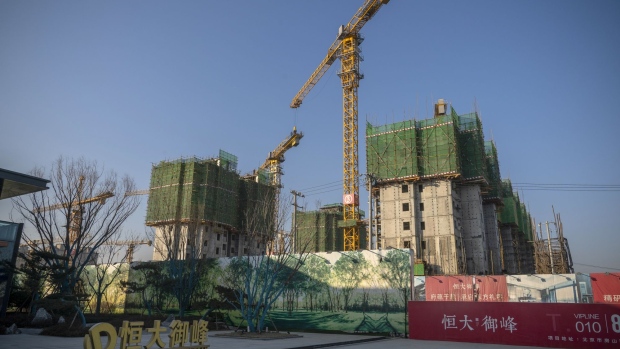
Unfinished apartment buildings at the construction site of a China Evergrande Group development in Beijing, China, on Thursday, Jan. 6, 2021. Evergrande is seeking to delay an option for investors to demand early repayment on one of its yuan-denominated bonds, in the latest sign of distress amid a broader real estate debt crisis. , Bloomberg
(Bloomberg) -- Investors in China Evergrande Group are still in the dark over just how $2.1 billion of deposits at its property-services unit came to be used as security for pledge guarantees and seized by banks.
In a call with investors late Tuesday, the developer’s officials reiterated comments from earlier filings that they were investigating the matter without sharing fresh details, according to people who attended and asked not to be identified. The third-party pledge guarantee wipes out most of Evergrande Property Services Group Ltd.’s cash holdings.
“It’s peculiar because investors expect Evergrande management should be aware of where the cash went rather than instead setting up an investigation committee to find out,” said Bloomberg Intelligence analyst Andrew Chan.
While the 13.4 billion yuan ($2.1 billion) in seized cash is small in the context of the broader restructuring, it raises questions over the reliability of the financial accounts of the services unit “if the group plans to sell it at a good price to achieve maximum recovery for creditors,” Chan said.
Representatives for Evergrande didn’t immediately respond to a request for comment about the call.
Evergrande creditors are keeping a close eye on the beleaguered developer as it embarks on a debt restructuring that’s likely to be among China’s largest and most complex. Worries over transparency have surfaced repeatedly as Chinese developers struggle to cope with a credit crunch that’s swept the sector as Beijing clamps down on excessive borrowing.
©2022 Bloomberg L.P.
Jeanny Yu and Ishika Mookerjee, Bloomberg News
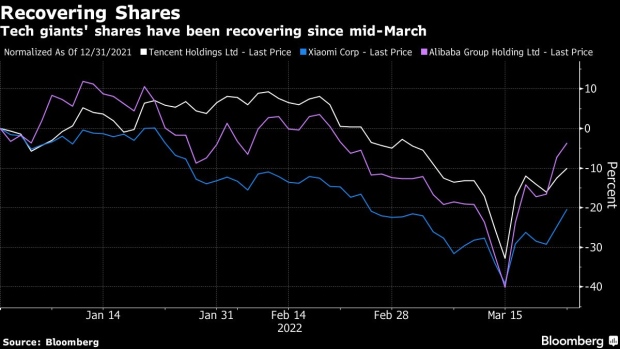
A cyclist wearing a protective mask rides past the Tencent Holding Ltd. logo at the company's headquarters in Shenzhen, China, on Saturday, March 20, 2021. Asia’s largest conglomerate was censured by China’s antitrust watchdog on Friday as Beijing expands a crackdown that began with Jack Ma’s online empire. Photographer: Qilai Shen/Bloomberg , Bloomberg
(Bloomberg) -- Share buybacks are emerging as the hottest trend among Chinese tech giants and industry leader Tencent Holdings Ltd. may be the next to jump on the bandwagon.
The online gaming giant climbed as much as 3.1% in Hong Kong on Wednesday, just before it’s expected to announce its slowest profit growth ever. Investors are betting that the company will follow in the footsteps of Alibaba Group Holding Ltd. and Xiaomi Corp., which both announced massive buybacks after their earnings, with the moves fueling a rally in their shares.
The improving sentiment in tech stocks reflects broader hopes that China’s crackdown on the sector is coming to an end after the government pledged greater support for the economy and capital markets. But, a recovery remains dependent on concrete action from the authorities, and Morgan Stanley’s equity strategists warn that it’s too early to be optimistic.
“Alibaba and Xiaomi have probably kick-started shareholders’ focus on buybacks after a horrendous performance in share prices in the last year,” said Kerry Goh, chief investment officer at Kamet Capital Partners Pte. “Tougher restrictions on investing in other firms, coupled with a strong balance sheet and good cash flow should motivate Tencent to do a share buyback like the others.”
An 18% surge in Alibaba’s stock since Tuesday indicates that share buybacks have become a more rewarding strategy for Chinese tech giants, after valuations slumped to near record lows and regulatory fears eased. Still, the scale of repurchases is small compared to megacaps in the U.S., which have bought back more than $20 billion worth of stock in each of the recent quarters.
“In consideration of cash usage, shareholder returns may now become a priority over something, say like the M&A back in the past,” said Vey-Sern Ling, senior analyst at Union Bancaire Privee.
Tencent boosted its dividend payout, including offering JD.Com Inc. shares, in order to lure investors. But, those moves have failed to reverse a downtrend in its stock. This year, Tencent overtook Alibaba to become the biggest loser in China’s tech rout after it shed about $450 billion in market value since last February.
Tencent certainly has the financial resources for a buyback. The company held about $40 billion in cash and short-term instruments on its balance sheet at the end of September, a figure that may well have increased when it reports the December quarter results.
The company’s business is under pressure with revenue growth projected to fall to its slowest pace on record when it reports earnings later Wednesday. Tencent’s games business has been handicapped by Beijing’s freeze on new titles, while its online advertising business is expected to have contracted for the first time on record in the fourth quarter.
Still, many analysts see opportunity in a buyback after Tencent plunged during Beijing’s crackdown, at one point shedding more than $500 billion in market value. Even after their recent rally, the shares trade at about 16 times earnings compared with Baidu Inc.’s 32 times and Twitter Inc.’s multiple of more than 100.
(Adds background in last three paragraphs)
©2022 Bloomberg L.P.
Linus Chua, Bloomberg News
BERLIN, GERMANY - SEPTEMBER 05: A doctor holds a stethoscope on September 5, 2012 in Berlin, Germany. Doctors in the country are demanding higher payments from health insurance companies (Krankenkassen). Over 20 doctors' associations are expected to hold a vote this week over possible strikes and temporary closings of their practices if assurances that a requested additional annual increase of 3.5 billion euros (4,390,475,550 USD) in payments are not provided. The Kassenaerztlichen Bundesvereinigung (KBV), the National Association of Statutory Health Insurance Physicians, unexpectedly broke off talks with the health insurance companies on Monday. (Photo by Adam Berry/Getty Images) Photographer: Adam Berry/Getty Images Europe , Getty Images
(Bloomberg) -- California Governor Gavin Newsom signed legislation Tuesday to eliminate out-of-pocket expenses for abortions, making the procedure more accessible as a growing number of states tighten similar laws.
Called the Abortion Accessibility Act, the legislation will stop health insurers from imposing co-pays and deductibles for abortions, making California one of six states that require coverage of such services, according to a statement from Newsom’s office.
The Democratic governor said he’s taking an opposing approach to the states that “attempt to move us backwards,” adding that the law will bring “equitable, affordable access to abortion services.”
Last year, Texas Governor Greg Abbott signed legislation that banned abortion after a fetal heartbeat is detected, which can occur as early as six weeks. Under the law, individuals can sue doctors, clinic workers and others who help a woman end an unwanted pregnancy past the cutoff date. Texas and some other states have also sought to restrict medication-induced abortions.
Earlier in the day, abortion rights emerged as an issue at the confirmation hearing for Ketanji Brown Jackson, who told the Senate Judiciary Committee considering her nomination to the Supreme Court that Roe v. Wade is settled law on abortion rights.
The comment was in response to a question from California Senator Dianne Feinstein as the court considers overturning the landmark Roe v. Wade decision and letting states outlaw abortion.
A group of more than 40 abortion providers and advocacy organizations have recommended the Golden state expand its ability to provide services to out-of-state residents if Roe v. Wade is overturned.

The US-backed war on Yemen started seven years ago this week, and after all this time US policy is practically unchanged. The coalition bombing campaign has picked up again in recent months with 700 airstrikes in February alone, and according to the Yemen Data Project the bombing has been more intense during this period than at any point since 2018. 1,500 civilians have been killed or wounded in these attacks. Despite being far more destructive and killing many more people, including 91 people in a migrant detention center, these airstrikes have received no criticism from the US.
Instead of withholding military assistance from Saudi Arabia and the United Arab Emirates (UAE) as it should have done, the Biden administration has been rushing more jets, ships, and air defense interceptors to the governments that have been brutalizing the people of Yemen directly and through their armed proxies. The US also backed a one-sided UN Security Council resolution that named the Houthis as a terrorist group while ignoring the many atrocities committed by the coalition governments and their proxies. While the US condemns aggression in Ukraine, it continues to support it in Yemen.
Yemen’s humanitarian crisis continues to worsen because far too little has been done to halt the slide towards catastrophe. The UN has warned again that famine is spreading in the country. According to their estimate, there will be 161,000 people in famine conditions this year, and that figure is five times larger than it has been in the past. The World Food Program’s David Beasley commented on the projection, "These harrowing figures confirm that we are on a countdown to catastrophe in Yemen and we are almost out of time to avoid it."
Two days after he said that, the UN aid drive for Yemen came up with a paltry $1.3 billion in donations, far short of the $4.27 billion that they were requesting. Saudi Arabia and the UAE have donated to these drives in the past to distract from their responsibility for the crisis, but this year they gave nothing. Yemen desperately needs more resources to stave off the worst-case scenario of widespread starvation, but more than that it needs an urgent effort to halt the fighting and lift the blockade. Even when there were no other major crises in the world, Yemen’s plight was badly neglected, and now it is being almost completely ignored.
To make matters worse, the war in Ukraine threatens to drive food prices much higher. In countries where tens of millions are already severely food insecure, including Yemen and Afghanistan, the effects of food shortages and rising global food prices will hit hardest. Yemen and Afghanistan were already facing some of the worst man-made famines before this because of economic warfare being waged against them, and this makes mass starvation even more likely.
Saudi Arabia and the UAE assume that they can extract more support from the US on account of higher energy prices, and the Biden administration has given them every reason to think that this will work. The US put no real pressure on either government over the last year, and Biden has signaled to these clients that he will give them practically anything they want. As usual, letting client states get away with murder just encourages them to make more demands and complain that they are being abandoned if they are not immediately satisfied. This is what comes of Biden’s so-called "back to basics" approach to the region, where the US remains deeply complicit in the crimes of its clients without using any of its leverage to get cooperation from them.
The war on Yemen is undoubtedly a war of aggression, but because it is waged by US client states with US backing it is not widely condemned in the same way as Russia’s illegal invasion of Ukraine. The only real difference between the two is that the Saudi coalition dresses up their aggression by claiming to be seeking to restore a deposed dictator as president, but that is a pitiful fig leaf for an unprovoked attack on a neighboring country. It certainly cannot justify the many thousands of airstrikes that have battered Yemen’s cities and villages and killed and injured tens of thousands of civilians. The people of Yemen have borne the brunt of the war for seven years, and they have done so mostly without the rest of the world paying them much attention.
The US has a special responsibility to bring this conflict to an end because our government has done so much to fuel and enable it, and time is of the essence in averting a major famine that this US-supported war is creating. The Biden administration has proven that it isn’t going to make more than a token effort on its own. It falls to the public and members of Congress to insist that the US use all the leverage that it has with these states to put a stop to this indefensible war.
Daniel Larison is a contributing editor and weekly columnist for Antiwar.com and maintains his own site at Eunomia. He is former senior editor at The American Conservative. He has been published in the New York Times Book Review, Dallas Morning News, World Politics Review, Politico Magazine, Orthodox Life, Front Porch Republic, The American Scene, and Culture11, and was a columnist for The Week. He holds a PhD in history from the University of Chicago, and resides in Lancaster, PA. Follow him on Twitter.
Peace or Punishment in Ukraine? US Should Seek To End the Conflict
The Russo-Ukrainian war continues. Moscow’s progress is slow, with its ability to maintain its offensive uncertain. Russia’s forces look inadequate to conquer and occupy the entire country.
However, the surprisingly effective Ukrainian resistance is but a negative achievement, limiting the casualties inflicted and damage wreaked. With millions of refugees in flight, major cities occupied or surrounded, territory captured, and life disrupted, the Ukrainian people are suffering greatly despite their relative success.
Of course, the conflict remains early. Decisive outcomes are still possible. The Russian armed forces might regroup, harness their great firepower, and manage a large-scale breakthrough. On the other hand, inadequate replacements, poor logistics, and deteriorating morale might enfeeble Russian units, inflating desertions and losses and forcing withdrawal.
However, as long as Moscow’s forces outnumber and out-muscle those of Kyiv, though without the significant margin normally necessary for rapid offensive operations, a deadlock or ponderous Russian advance looks more likely. With a conflict that seems ever more purposeless, both sides will lose the longer the fighting continues. The only solution is an end to combat and negotiated settlement.
Both sides should make such an outcome their top priority. Although the temptation might be to go for broke, the price of failure would be great.
For instance, a stalemate or even slow-motion Russian advance threatens more than failure for Moscow. Irregular resistance is likely to rise over time, bleeding Russia’s armed forces. Much of Moscow’s effective forces have been committed, logistics will remain difficult, a continuing stream of casualties will create discontent at home, and harsh Western sanctions will inhibit military resupply. Even victory isn’t likely to seem like one to the long-suffering Russian people. President Vladimir Putin’s own political future might grow uncertain: his regime, like that of Romania’s Nicolae Ceausescu, looks solid today, but his chief lieutenants might eventually fear going down with him.
Ukraine is no less at risk. A slow and intermittent Russian advance would leave a sizable and increasing amount of territory occupied, several major cities threatened by bombardment and with capture, economy and society disrupted, millions of people displaced, dependence on other nations for military and financial support, and persistent possibility of battlefield defeat. Moscow could effectively disable the Ukrainian state without fully occupying the country. The remainder would be but a shadow of its former self.
Kyiv’s hope to use insurgent attacks to break Moscow’s will to fight might ultimately succeed, but at horrific cost. Afghanistan went through nearly a half century of foreign invasion, domestic insurgency, and civil war. The chief victims were the Afghan people. Ukraine does not want to suffer through a similar experience, with a distant, difficult recovery ahead.
Moreover, the longer the conflict runs, the greater the damage that will be inflicted and the more difficult it will be to settle without a definitive result. Anger, bitterness, and hatred will only increase, encouraging both sides to demand more out of the conflict.
Nor will extended combat radicalize only the combatants. Even more likely will those involved vicariously press for a decisive outcome. Indeed, allied involvement was driven by an unusual degree by public outrage, social media, and raw emotion. People who pay no attention to brutal aggression and mass killing backed by the West, such as Yemen, are organizing boycotts of Russian athletes, conductors, singers, goods, and music. These fair-weather foreign policy enthusiasts might be more likely to demand punishment than peace. Bankrupt Moscow, oust Putin, arrest war criminals, and reorder Russia.
Strategist Tanner Greer warned that "The maximalist language emanating from some Western capitals is a natural, if unwise, response to this sort of atrocity." Exhibiting precisely this characteristic is David Rothkopf, variously government official, journalist, and academic, who tweeted: "To those who have called for an ‘off-ramp’ for Putin, I have just one question. Don’t you feel ashamed of yourselves?" It would be better to ask that question of policymakers who recklessly expanded NATO and shamelessly lied to Kyiv about bringing it into the alliance, doing so much to cause today’s war. And who today cheer on Ukrainians from a safe distance, watching them die and their country suffer.
Although Kyiv has gloried in its ability rally much of the global community to its side, it should remember the clear limits to the West’s commitment. The US and its allies spent 14 years promising Ukraine membership in NATO, but never delivered. This refusal to make a deal with Moscow encouraged Ukraine to stand firm. Now Ukrainians are paying a high price for a war that was preventable. Kyiv should beware a reprise, with Western opposition to a deal that could deliver peace, stability, and reconstruction. The allies appear perfectly prepared to spend months or even years applauding as Ukraine suffers through conflict and division.
American and European support for peace is critical. Russia might refuse to end the war unless the allies agree to lift sanctions. The latter might see doing so as allowing Moscow to profit from unprovoked aggression. Although this would be deeply dissatisfying to many, it also would be the best policy – for Ukrainians in the first instance, as well as the rest of us.
Warned Greer: "Refusal to settle on the part of the Ukrainians or their Western backers will likely lead the Russians to commit to the permanent occupation of the territory they’ve taken. This is the most probable outcome of any policy predicated on inflexible Western ultimatums. In this scenario, sanctions would stay in place for decades. A new iron curtain would fall across Europe, separating Belarus, Russia and occupied Ukraine from the West."
The costs and risks of the West from this course would also be significant. The US and allies would need to provide long-term military and economic support for Ukraine. The global economic impact of a permanent sanctions regime would only increase. So long as the Ukrainian conflict burns it could expand, intentionally or inadvertently, to the US and NATO. A desperate Russia could turn the conflict nuclear. We tried punishing the defeated in World War I, and it turned out very badly. Creating a new Cold War and Iron Curtain would mean a much more dangerous European security environment. Pressure would increase on the US to revert to a garrison state to fortify both Europe and Asia.
Ukrainians need the war to stop. So do the Russians. The earlier combat is halted the better the chance to negotiate a reasonable settlement. Both sides will have to give. Moscow still has legitimate security needs which, if left unsatisfied, could trigger a future conflict. Afterward Russia should be welcomed back into polite company. Sanctions hurt the West as well as Moscow. Moreover, punishing the Russian people for the crimes of their rulers risks inflaming nationalism and pushing them closer to their government. There is better hope for a post-Putin era if Russo-Western contacts are revived.
Although Russia is directly responsible for its invasion of Ukraine, Washington, and Europe bear significant blame for the current conflict. After the Soviet Union collapsed the West gloried in Russian weakness and ruthlessly dismissed its security interests. The West also misled Ukraine into thinking that it would find NATO at the end of the rainbow. The result is now a bitter conventional war in Europe, with manifold global ramifications. Those dying on both sides are doing so in part because of US recklessness and hubris.
It is in the interests of all parties to halt the conflict. Kyiv and Moscow will need to compromise. Washington and its allies should use their considerable clout to push peace. Much depends on the outcome. For once American policymakers should insist that failure is not an option when it comes to restoring peace rather than making war.
Doug Bandow is a Senior Fellow at the Cato Institute. A former Special Assistant to President Ronald Reagan, he is author of Foreign Follies: America’s New Global Empire.